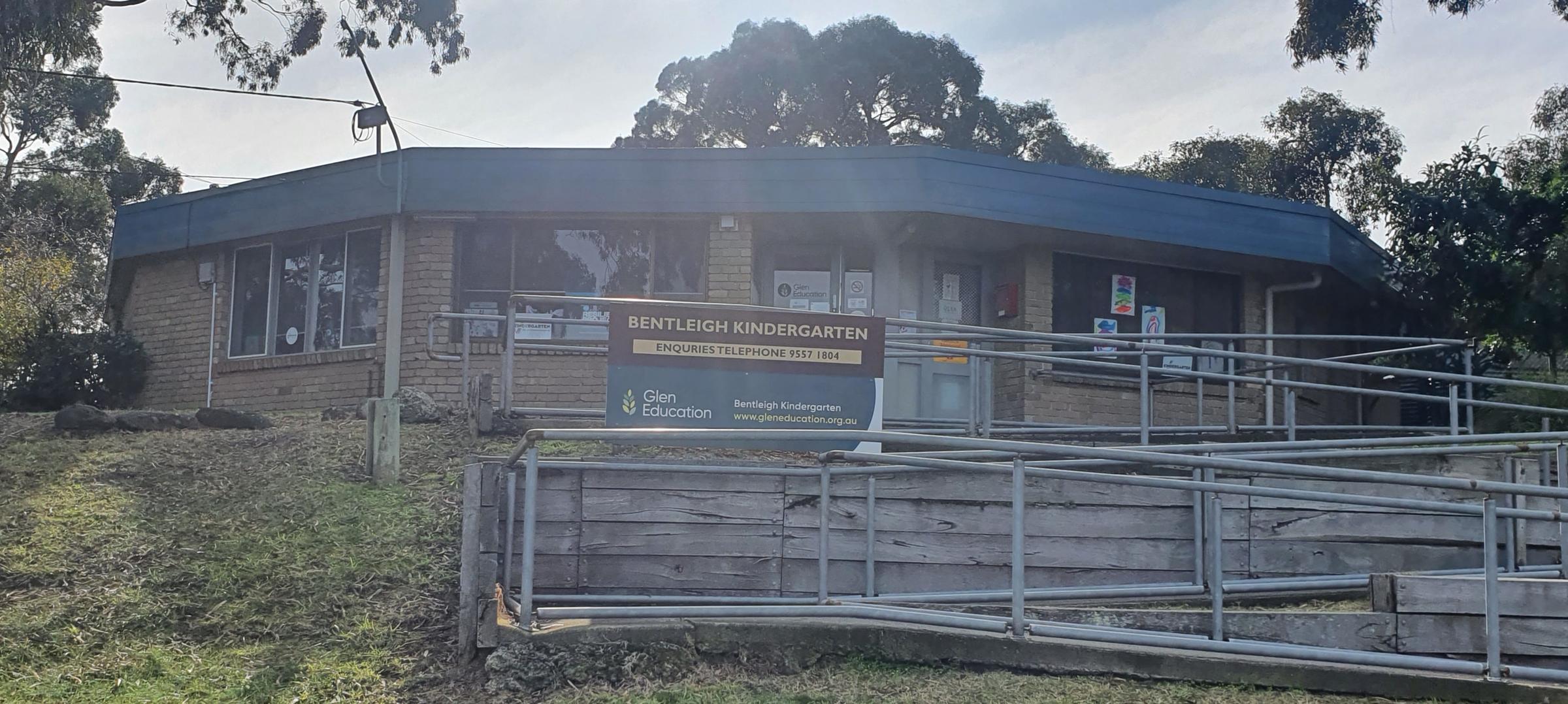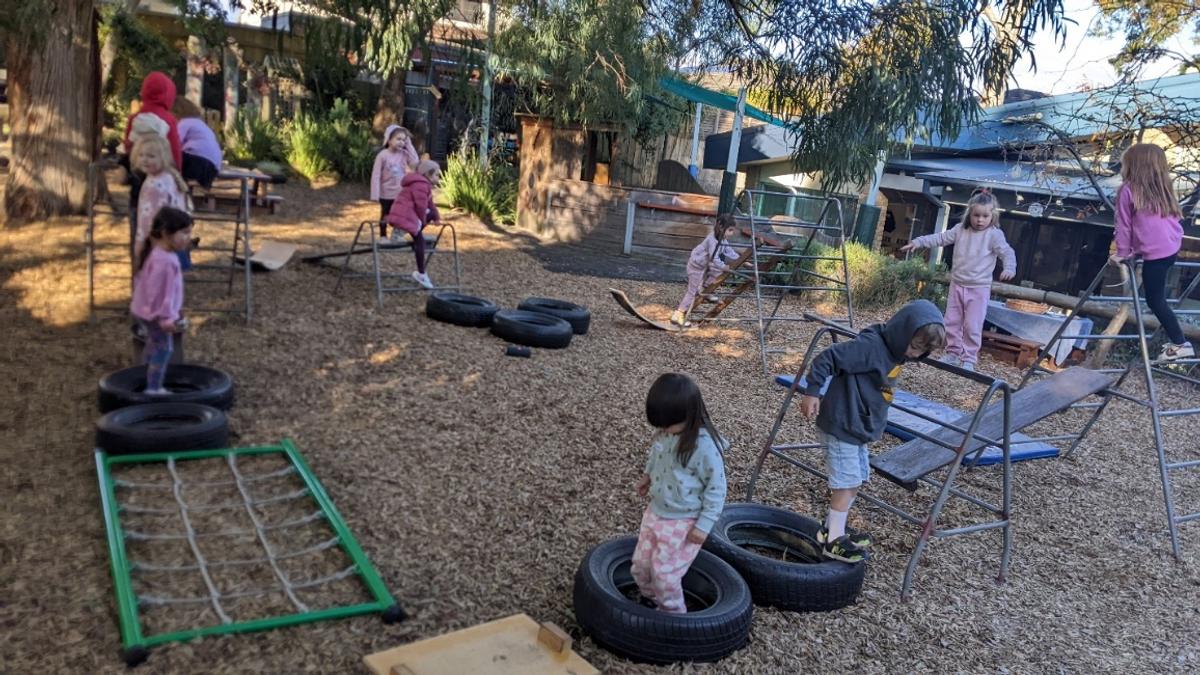Glen Education Bentleigh

Creating Inclusive Communities
Glen Bentleigh Kindergarten Educators
Quality Area 1: Educational program and practice
At Glen Education Bentleigh Kindergarten, we demonstrate exceeding practises in Quality Area 1, with a program that enhances each child’s learning and development. Educators provide a play-based emergent curriculum and offer an open-ended and developmentally appropriate program. Educators plan, using a learning cycle of “Notice, Recognise and Respond” which is reflective of the learning cycle within the Early Years Learning Framework (2022). Educators consider what they witness and hear from children to frame the learning experiences and environment. This is balanced with intentional teaching and learning of new concepts, critical for lifelong skill development. Educators use various learning strategies, including scaffolding and modelling, to implement a high-quality program. We endeavour to adopt a project-based approach when children’s interests continue over multiple sessions.
We have recently reflected on our documentation process. As a team, we discussed ways of documenting that allowed authentic consultation with all kindergarten stakeholders. The Bentleigh Kindergarten team has begun implementing a program based on Floor Book documentation method. Our program documentation involves consultation with children to make planning more relevant and ensure their voice is heard. This form of documentation creates a balance between intentional teaching, child autonomy and reflects the planning cycle.
- Jo Peterson, Early Childhood Teacher
Quality Area 2: Children's Health and Safety
This term the Glen Bentleigh team modified the outdoor environment and set up experiences to support children’s gross motor skills, balance, body awareness and fine motor skills development. In reviewing our incident reports, we noticed many of them were due to emerging, gross motor skills, balance and body and spatial awareness. We were grateful to have the insight of an occupational therapist through our School Readiness funding to help us with knowledge, ideas, and resources.
In consultation with the OT, we developed strategies to foster children's gross motor development, such as songs to practice crossing the mid-line, building movements into our daily routines and transitions, further modifications to our outdoor spaces to make them inviting and challenging for a range of abilities.
One example of these strategies in action is the game "Body part Bonanza". We ask children to touch different body parts with their eyes closed, our touch one body part with another, for example “left elbow right hip”. Children get a turn to give directives too and because some part may be hard to reach, we often have a giggle. Children enjoyed our freeze game on the obstacle course and balancing surface on upbeat music.
These games support children to develop their sense of bodily awareness and their ability to orientate themselves safely during play.
Another example of our commitment to children's safety is how our team have embedded practices to support children and families to develop their awareness of body safety actions and bodily autonomy. We sent communications out to our families regarding the New Child Safe Standards and how we implement them at Glen Education Bentleigh Kinder. Below is a snippet from our email:
Dear Families,
this fortnight we explored the Right of the Child and will move onto personal safety in the coming weeks. The Child Safe Standards were introduced in response to recommendations from the Victorian Parliamentary Inquiry into the Handling of Child Abuse by Religious and other Non-Government Organisations. (…)
In addition to information, we shared the teaching strategies the educators at Glen Bentleigh kindergarten have been implementing with children such as:
- discussing emotions and feelings such as happy, sad, angry, worried, etc.
- talking about what it is like to feel ‘safe’ and ‘unsafe’.
- discuss body boundaries, personal space, and consent.
- discuss their ‘Early Warning Signs’
- identify all body parts, including private body parts and private zones.
- discuss secrets and surprises, and how some secrets should never be kept.
- identify trusted adults that they could go to if they are feeling unsafe (a Safety Network).
As a team we work to empower children with skills and knowledge that will lessen the likelihood of them becoming victims of childhood sexual abuse, to support children to know what to do if they are touched inappropriately and support them to develop general assertiveness especially in relation to their own body.
- Amelie Llorca, Early Childhood Teacher
Quality area 3: Physical Environment
The service environment is inclusive, promotes competence and support exploration and play based learning: our outdoor environment encompasses man-made weather-proof outdoor furniture which can used by all the children and safe in all kinds of weather.
We make sure all the furniture and equipment are well maintained checking everyday according to an outdoor and indoor checklist. We also organize regular working bee with families of all groups to help clean, repair and restore the kindergarten furniture and ground. This is a social occasion as well as for parents. This comment would fit more in the strengths.
Sharing play areas across different age group and supporting risky play:
This year we have introduced multi-age groups ranging from 3 to 5 years old. As a team we reflected on our outdoor set up, to look for ways to modify the environment to suit a range of developmental needs and to be safe yet offer challenges and risk-taking for all.
For example, the tall A frame can be used for climbing for those who are more confident or changed into tunnels or cubby houses when covered with fabric, while children built their confidence on lower apparatus.
Another example is the swing set: In the first term, we had two swings, to support children sensory needs and build familiarity with the environment and educators. Educators supervised and supported children to take turns, learning to be safe around the swings as the children were playing. In the second term, we changed one for a trapeze, where when children are ready, they can build upper body strength, swing hanging from the bar and practice doing flips.
We encouraged children to have a go, and gain confidence through practice, while discussing the need to listen to their body and take reasonable risks. The educators support children to consider risks and assess their own safety during play. We believe children need risky play, and challenges, to develop their sense of strength and balance, using their hands and legs, and core strength. They often share their achievement and became more confident when they have done something new, or they were a little bit unsure of.
- Renee Furen, Early Childhood Educator
Quality area 4: Staffing Arrangements
I am new to the Glen Education’s family, starting at the end of January 2023. If I have to think of an area where our kindergarten exceeds, is Quality Area 4: Staffing Arrangements.
From the very beginning of my time at Glen Bentleigh kindergarten I have felt part of the group with my colleagues. Every morning, we discuss our reflections on the program and areas we can extend children's learning, what can we add or modify. Each educator and teacher is involved and take active part in this process.
There is great communication between each other, mutual respect and collaboration, recognizing and respecting everybody strengths, skills and challenges. We are all committed to provide the best learning environment for the children. I can definitely say that I have much to learn as an Educator; and working with my colleagues is giving me lots of inspiration, and ideas on how to develop my professional practice.
When staff members practice open communication and share information to deliver high quality education and care, when they support and learn from one another, and when they work well together; the quality of the service can improve continuously.
We respect each other’s opinions and ideas. We share our roles and responsibilities throughout the day, no matter what the qualification (cert 3, diploma or teachers).
When for some reason someone is unable to come to work, we are happy and available to help each other covering shifts and offer continuity of care for the children.
- Fiammetta Soazzi, Early Childhood Educator
Quality Area 5: Relationships with Children
Our kindergarten and educational team have embedded practices in our centre to enhance our relationship with children and build positive outcomes for their learning. Our strengths are that our environment and our team are always warm and welcoming, and we are all committed to providing respectful, reassuring relationships and conversations with not only the children but also their families where their opinions are valued, and conversations are never hurried. Because of these responsive and meaningful interactions, we are able to form genuine connections.
An example of this in practice is when I became a primary connection for a child as a method for supporting her to overcome her separation anxiety from Mum. This relationship developed over time and involved building a relationship with the child, as well as the family to better understand how we as a kindergarten could support them and reassure them that the kindergarten was a safe and welcoming space.
Through our established connection and relationship, I was able to support and encourage the child to interact with her peers so that she could build relationships with others and develop the confidence to separate at the start of the day and continue her independence throughout the session.
- Janet Milwood, Early Childhood Educator
Quality area 6: Collaborative partnerships with families and communities
At Glen Bentleigh kindergarten we work with families and the community to develop partnerships and provide a community focussed approach to our program.
During Tours, Welcome Afternoons and Orientation sessions we stress the benefits of our flexible drop off and pick up policy.
This policy supports children and families to engage in a more relaxed drop off procedure, having time to spend with their child as they settle in for the day or making time to speak to educators. Families with new babies find it reassuring that, if getting everyone ready in the morning is challenging, they can relieve the pressure knowing they are able drop their child at kinder in their own time. Children who are having a difficult morning or overly tired can arrive when they are ready. Last year one child always arrived after their sibling was dropped at school. Due to family circumstances Nanna dropped the children off and it was easier to do the school run first. Similarly, families know they can pick their child up early if they need to. Several families pick up their kinder child before the older school siblings due to after school commitments.
This year we have several children with separation anxiety. When the whole group doesn’t arrive at once it is less hectic, and the staff have more time to give these children the support they need. For example, one child, who has very little English, is very upset when their Mum leaves and finds great comfort in sitting with an educator exploring a ‘Look And Find’ book. No English is needed to enjoy this shared activity. Noticing this is calming and distracting for them, as well as others, we found other such books to add to our resources. Cuddle toys have been a big comfort for the anxious children this year and so are welcomed as part of their support plan.
- Karen Chisholm, Early Childhood Educator



